This article examines ten popular American-market foods that face restrictions, warning labels, or outright bans abroad due to specific safety or regulatory concerns. Data comes from food regulations in the European Union, Japan, Australia, New Zealand, and other countries, as well as documented enforcement actions and ingredient bans. Each entry cites the countries involved and the precise reasons for restrictions, ensuring a clear, factual foundation without hearsay or vague generalities.
1. Pop-Tarts: “Colorful Pastry, Controversial Dyes”
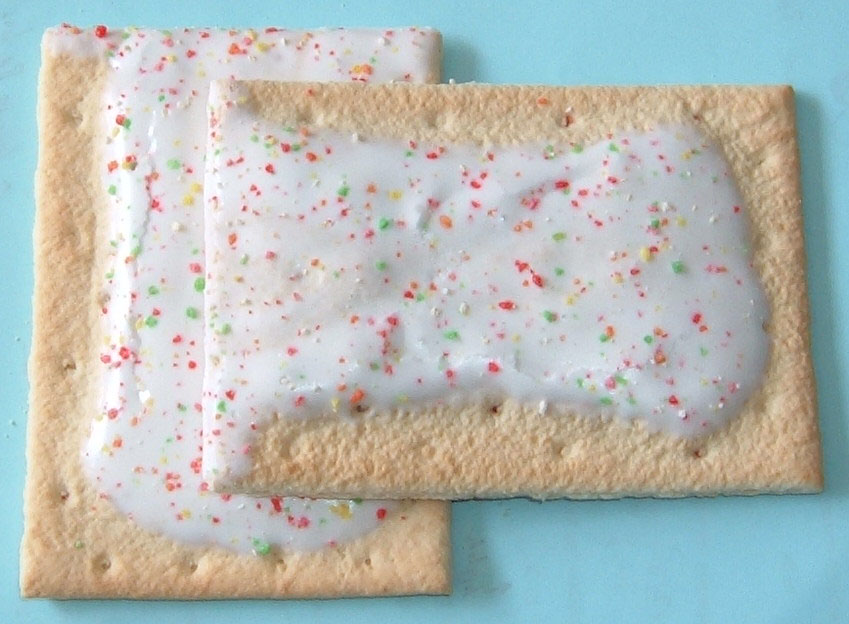
Many Pop-Tarts contain artificial colorants Yellow 5, Yellow 6, Red 40 that research links to hyperactivity in children and potential carcinogenic effects. In the EU, such dyes require warning labels, and some formulations aimed at children are banned outright. Countries like Finland, France, Austria, Norway, and the UK either restrict or refuse these versions entirely. This divergence underscores regulatory caution in Europe compared to the U.S.
2. Mountain Dew: “Neon Citrus, Banned Additives”
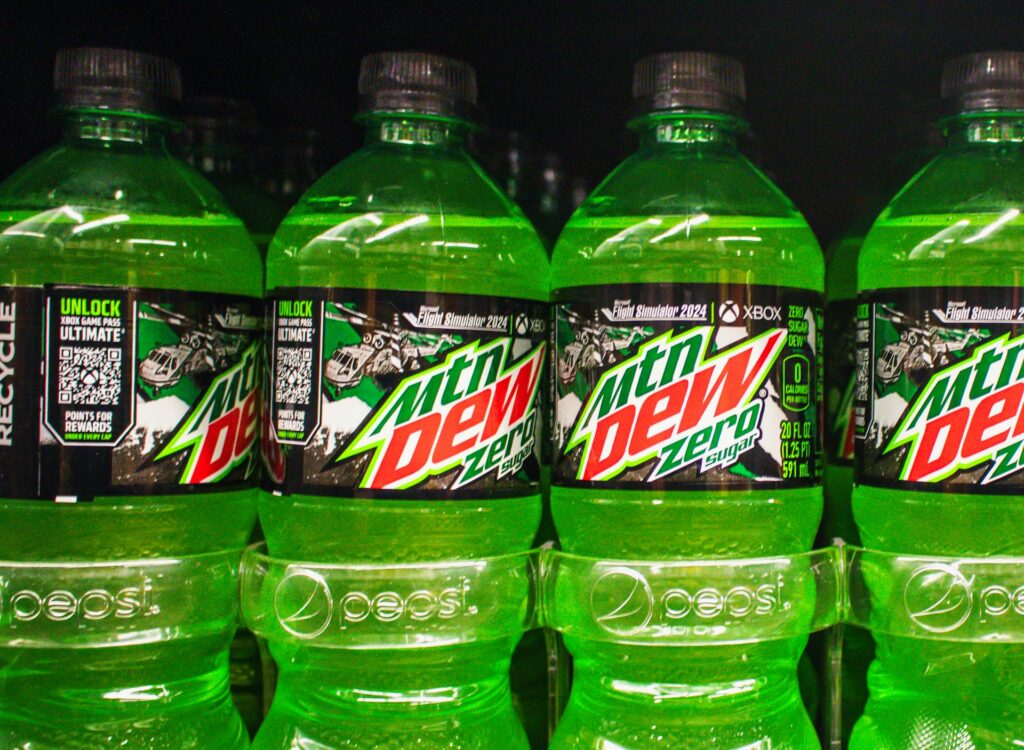
American-style Mountain Dew formerly included brominated vegetable oil (BVO), an emulsifier banned in the EU, UK, Japan, India, and others due to neurological and thyroid risks. Although removed by 2020, its inclusion in older batches led to import seizures such as the UK confiscating U.S. sodas containing BVO and banning colors like Yellow 5 without reformulation.
3. Gatorade: “Sports Drink with Strange History”
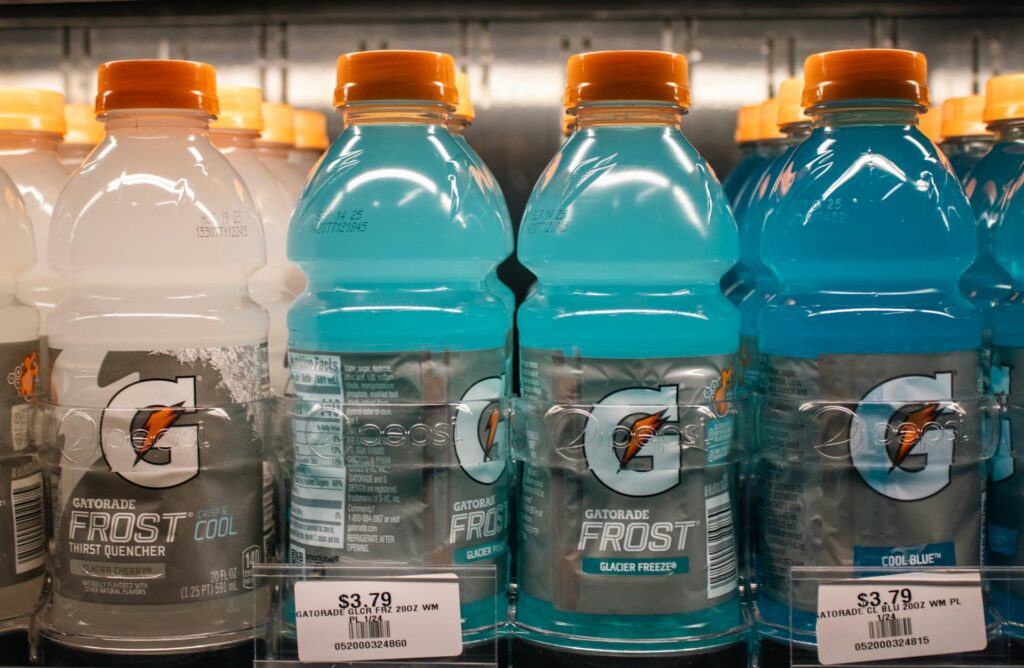
Prior to 2013, some Gatorade variants in the U.S. utilized BVO banned in the EU and Japan prompting regulatory action and reformulation. Additionally, the EU restricts Yellow 5 and Yellow 6: any drink containing them must have warning labels, and consumption by infants and children may be prohibited in certain jurisdictions.
4. Little Debbie Snack Cakes (“Zebra Cakes & Swiss Rolls”): “Sweet Treats, International Scrutiny”
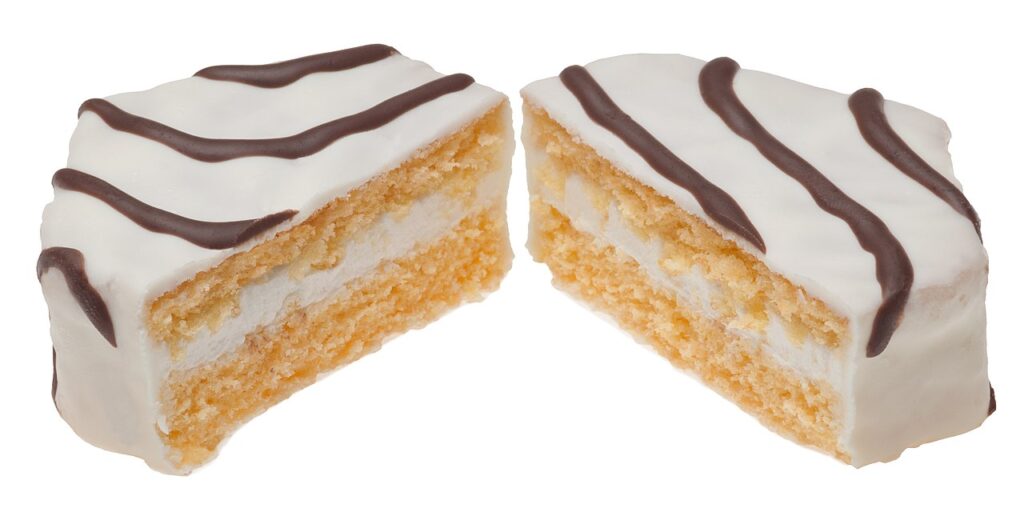
While no comprehensive ban lists exist, similar U.S. snack cakes such as Swiss Rolls have faced restrictions abroad due to additives like artificial dyes and high-fructose corn syrup. In the EU, regulations on such ingredients trigger reformulated versions or limited availability; some countries even mandate warning labels or restrict marketing to children. Although specific data on Zebra Cakes is limited, the underlying ingredients mirror those prompting bans elsewhere.
5. Skittles: “Rainbow Candy, Restricted Colors”
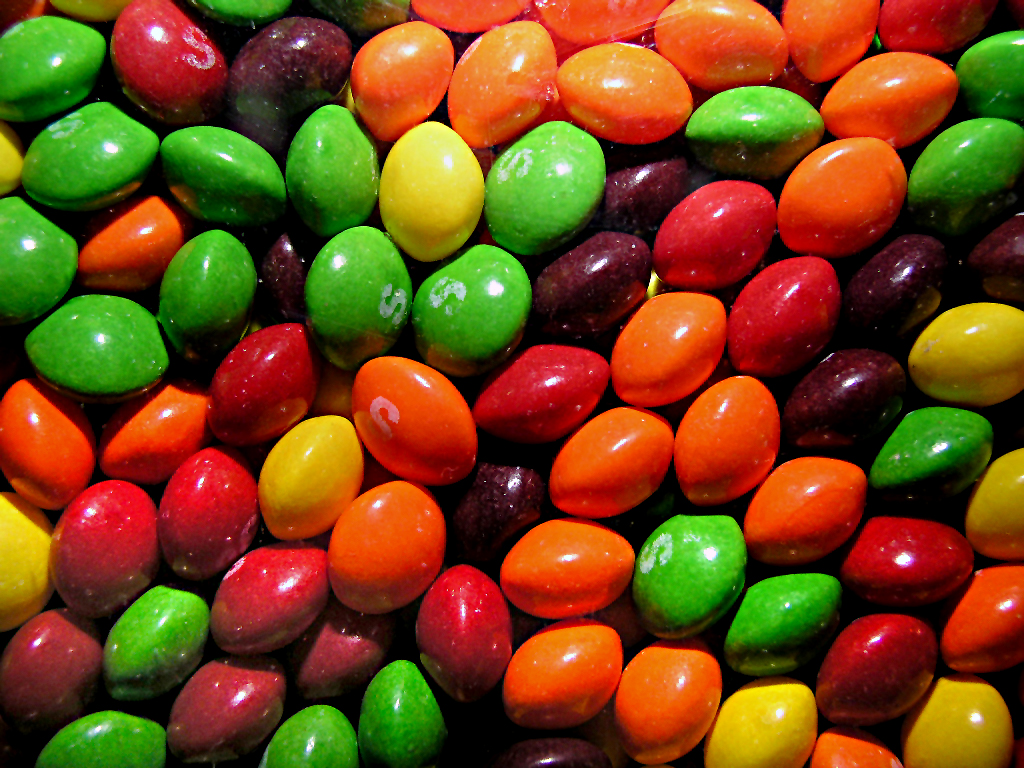
Skittles often contain artificial dyes including Red 40 and Yellow 5. Nations like the UK and EU impose stringent rules labels stating “may affect activity and attention in children,” or outright bans for products targeting kids. In effect, Skittles in their original U.S. form may face import restrictions or require reformulated versions to comply with local consumer protection laws.
6. Lunchables: “Packaged Convenience, Health Concerns Abroad”
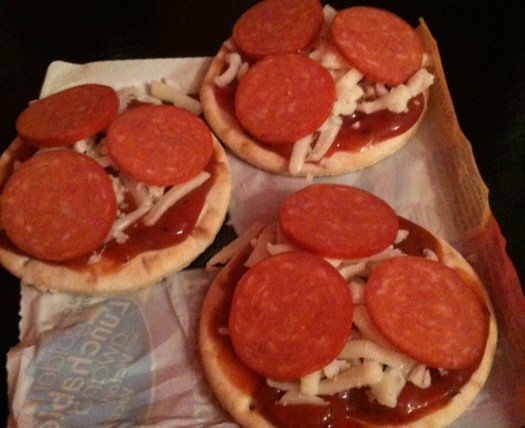
Lunchables combine processed meats, cheeses, crackers, and additives like preservatives, nitrates, and high sodium. Several European countries stringent about processed meat and additive limits discourage or restrict such ready-to-eat kits. While detailed ban listings are rare, the cumulative health concerns (sodium, nitrites, packaging waste) contribute to their low acceptance and limited import in places like the EU.
7. Instant Ramen (U.S. Maruchan or Top Ramen): “Quick Noodles, High Additives”
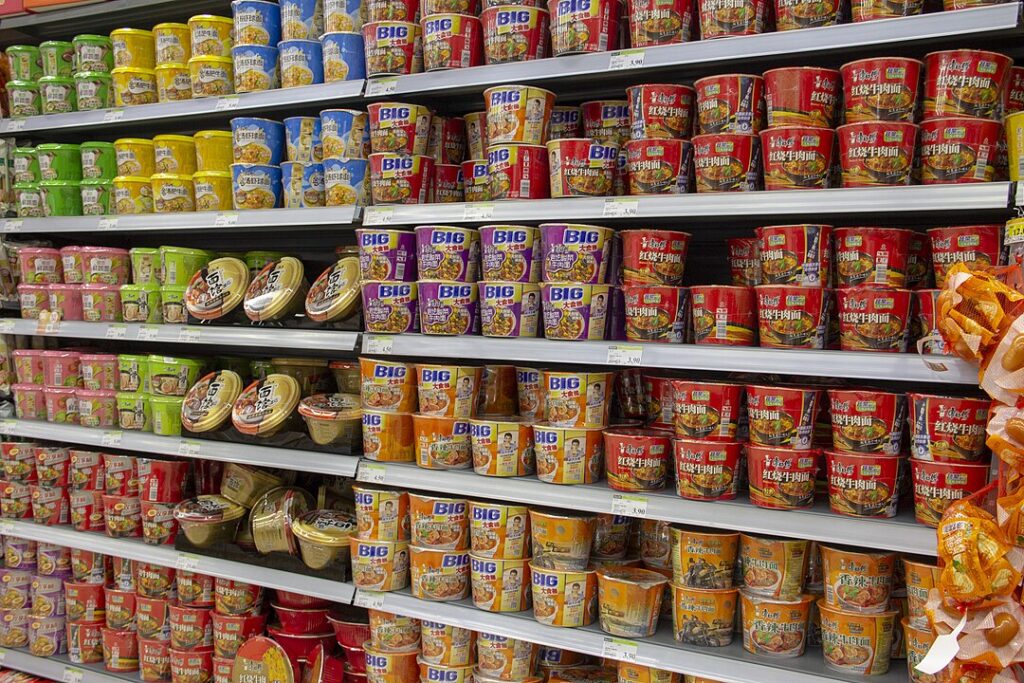
U.S. instant ramen often contains monosodium glutamate (MSG), artificial preservatives, and high sodium. Some countries, notably in Europe, limit MSG in school meals or children’s products, and impose health-warning labels or formulation changes. Italy and France, for example, restrict certain additives commonly used in U.S. versions leading to reformulated lines or restricted sale.
8. Farmed Salmon: “Cultivated Catch, Banned in Oceania”
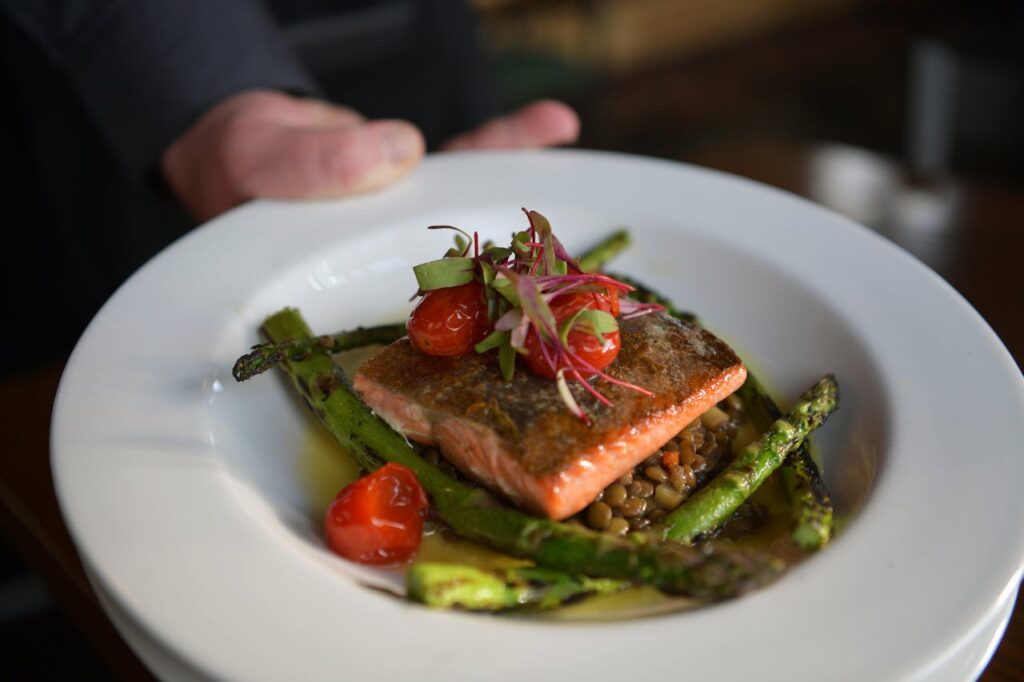
Farm-raised salmon especially Atlantic farmed variants are restricted in Australia and New Zealand due to concerns over antibiotic use, astaxanthin additives, pollution, disease transmission, and environmental impact. These countries prefer wild-caught salmon for its perceived greater safety and sustainability, effectively limiting the presence of U.S. farmed salmon products in their markets.
9. Processed American Cheese Slices: “Yellow Slices, Ingredient Issues”
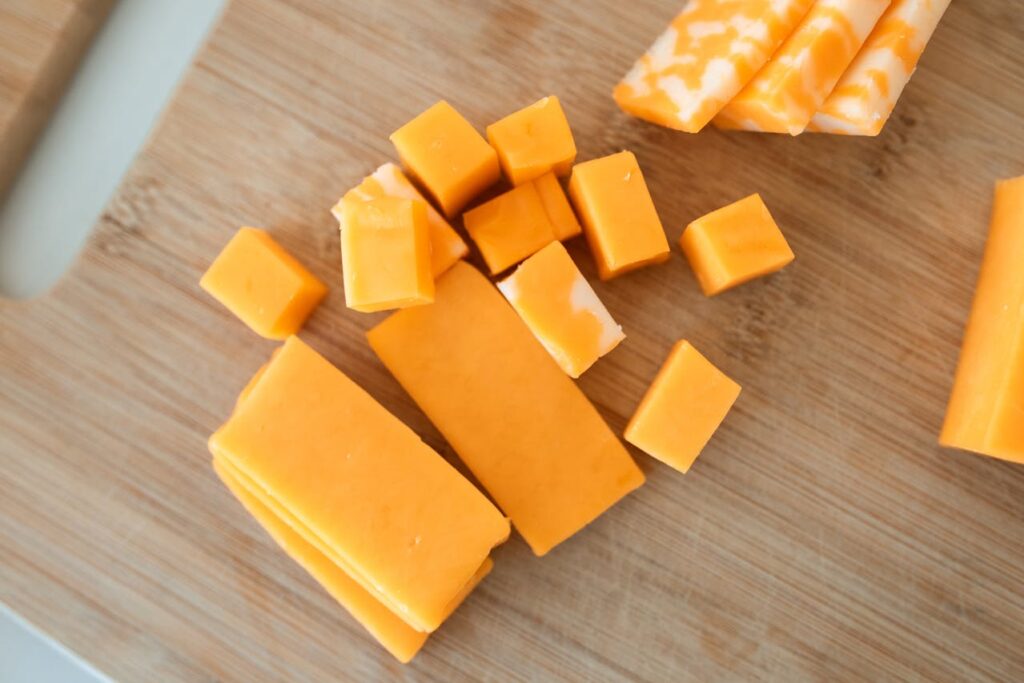
Processed cheese slices in the U.S. typically contain emulsifiers, preservatives, artificial colorants (like annatto or Yellow dyes), and sodium phosphates. Many European nations limit colorants and certain preservatives in cheese, leading to stricter definitions of “cheese” that exclude highly processed slices. This results in reformulated versions or absence of U.S.-style processed cheese in such markets.
10. Frosted Flakes (and Sugary Cereals): “Sugary Crunch, Children’s Health at Issue”
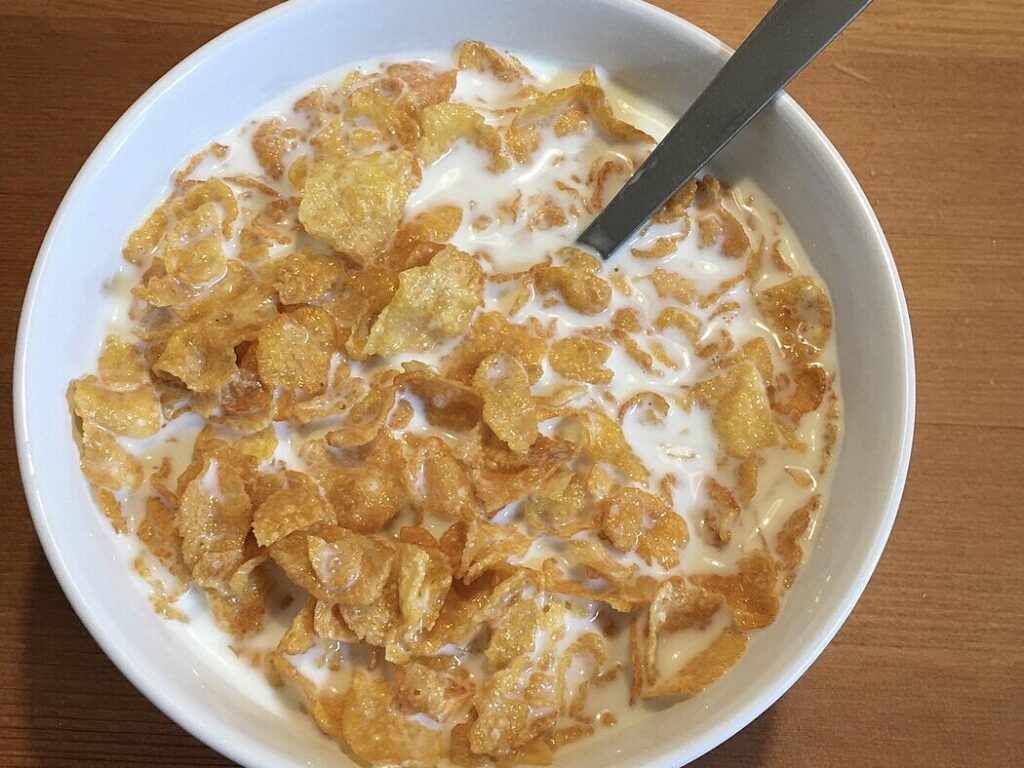
Sugary cereals like Frosted Flakes are laden with sugar, artificial colors, and sometimes BVO (in some U.S. flavorings). The EU and other jurisdictions mandate warning labels for such products and curb their marketing to children. In certain Nordic and EU schools, cereals with overly high sugar levels or additives are banned from being served reflecting a clash between U.S. formulations and international child-nutrition policies.
Comments